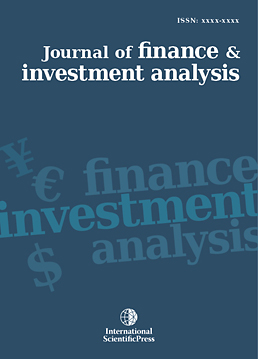Journal of Finance and Investment Analysis
Correlation Neglect, Naïve Diversification, and Irrelevant Information as Stumbling Blocks for Optimal Diversification
-
 [ Download ]
[ Download ]
- Times downloaded: 10667
-
Abstract
The paper analyses on an experimental basis the phenomenon of non-optimal diversification in portfolio choice decisions. The main obstacles to achieving optimal diversification are investigated – the correlation neglect hypothesis and information processing, both of which lead to suboptimal diversification decisions. This is possible by constructing the investment alternatives in the experimental design in such a way that the Markowitz efficient frontier is reduced to a single point in the return-risk diagram, enabling unambiguous interpretation of the results. The experiment shows that the subjects are not in a position to use the information that is most relevant to investment alternatives and ignore correlation in making their portfolio choice. Moreover, they are unable to prescind from clearly irrelevant information. The first effect dominates the second – in the absence of irrelevant information, the subjects neglect the correlation between the assets. The effect is even more pronounced with additional irrelevant information. These findings shed more light on individual investment behaviour and pose questions about regulating pension funds to ensure optimal diversification of pension savings.
